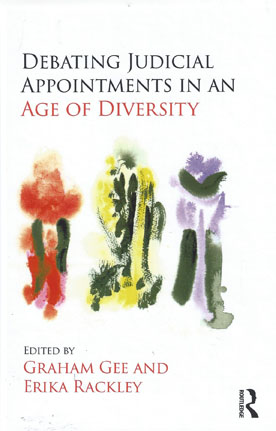
What should be the primary goals of a judicial appointments system, and how much weight should be placed on diversity in particular? Why is achieving a diverse judiciary across the UK taking so long? Is it time for positive action? What role should the current judiciary play in the appointment of our future judges?
There is broad agreement that diversity raises important questions for a legal system and its officials, but much less agreement about the full implications of recognising diversity as an important goal of the judicial appointments regime. Opinions differ, for example, on the methods, forms, timing and motivations for judicial diversity.
To mark the tenth anniversary of the creation of the Judicial Appointments Commission (JAC) in England and Wales, this collection includes contributions from current and retired judges, civil servants, practitioners, current and former commissioners on the JAC and leading academics from Australia, Canada, South Africa and across the UK. Together they provide a timely and authoritative insight into past, current and future debates on the search for diversity in judicial appointments.
Topics discussed include the role and responsibility of appointments commissions; assessments of the JAC’s first ten years; appointments to the UK Supreme Court; the pace of change; definitions of ‘merit’ and ‘diversity’; mandatory retirement ages; the use of ceiling quotas; and the appropriate role of judges and politicians in the appointments process.